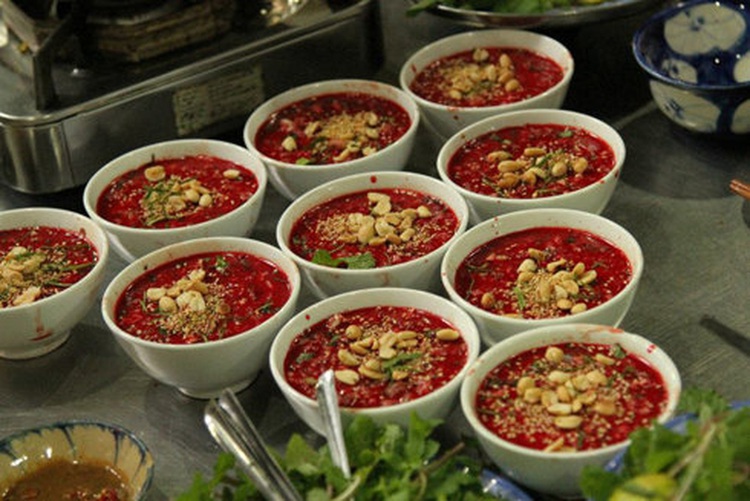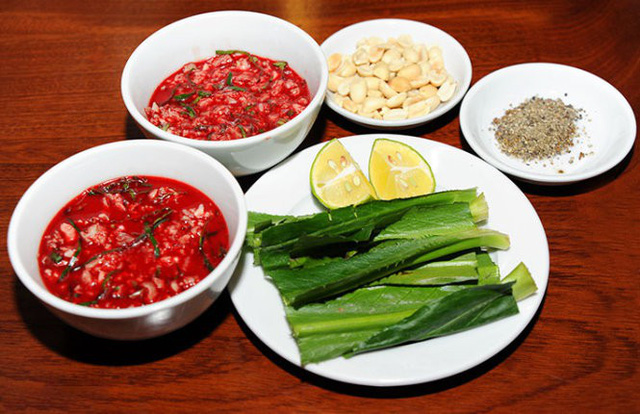
Vietnam’s health ministry has recommended that people think twice about having a favorite blood-based dish if they do not want to enjoy the upcoming Lunar New Year, or Tet holiday, on a sickbed.
Raw blood soup is the biggest cause of streptococcus suis infection in humans, so people are advised to remove this dish from their Tet menu, the General Department of Preventive Medicine under the health ministry said in a recent announcement.
Raw blood soup, or tiet canh in Vietnamese, is a dish made of the raw blood of ducks, geese, or pigs, with peanuts and herbs on top. The dish is usually served alongside traditional Vietnamese alcohol.
More than 170 people were diagnosed with streptococcus suis infection, with 14 succumbing to the disease, in 2017, according to the preventive medicine department.
Streptococcus suis, or S. suis, is a family of pathogenic gram-positive bacterial strains that represents a primary health problem in the swine industry worldwide.
The bacterium, capable of transmitting from pigs to humans, is also an emerging zoonotic pathogen that causes severe human infections clinically featuring with varied diseases and syndromes, including meningitis, septicemia, and arthritis. Those with severe symptoms can even die from the disease.
S. suis infection is acquired through exposure to contaminated pigs or pig meat, and the most common cause of the disease in Vietnam is eating pig blood soup that is improperly cooked, according to the preventive medicine department.
“The number of infection cases tends to rise before and during the Tet holiday, when it is a tradition in different parts across Vietnam to slaughter pigs and eat the ‘bloody dish’ on the spot to obtain ‘luck’,” department head Tran Dac Phu said.
 |
| Several dishes of raw blood soup are seen in this photo illustration. Photo: Tuoi Tre |
In fact, pig blood soup accounts for as much as 70 percent of S. suis infections in humans, Phu underlined.
The other cases are caused by consuming Vietnamese fermented pork, or nem chua as locally known, that is improperly made or having open wounds exposed to the bacterium. The latter is common for people who work on swine farms.
“Some people think that they know their pigs and are convinced that blood soup made from the ‘clean’ swine is safe to eat,” Phu said.
“In fact, there are cases where the animals are already infected but show no signs or symptoms.”
As the disease can quickly become deadly and require a high cost of treatment, people should use clean food to have a safe Tet, he added.
 |
| Two dishes of raw blood soup are seen in this photo illustration. Photo: Tuoi Tre |
People who eat raw blood soup made from infected pigs can develop such symptoms as fever, diarrhea, headache and consciousness loss.
In worse cases, patients may suffer from shock, pulmonary embolism, and multiple-organ failure, and eventually succumb to the disease.
“Don’t take yourself away from the Tet celebrations just because of the blood soup or fermented pork,” the preventive medicine department advised.


Max: 1500 characters
There are no comments yet. Be the first to comment.